Another week of wall-to-wall reporting on the Russian invasion of Ukraine. That characterization of the operation is tantamount to a federal offense now in Russia. Whereas there they use force to make people think a certain way, over here we use the Edward Bernays method. That’s why polling shows a majority of Americans wanting the President to be “tougher” in his approach to the Ukraine crisis.
Majority support for policies that could easily result in total nuclear annihilation doesn’t occur in a vacuum. Reporting on the atrocities Russia is committing in Ukraine flows in a constant stream from the corporate media. To be clear, it is 100% something that should be reported on heavily. But this is more than coverage. It is an influence campaign, and it may just get us all killed.
A game of absolutes
One of the sure signs that the networks are propagandizing us is the characterization of this war as part of a broader struggle between freedom and tyranny. Even Chris Hayes went on a tear about his last week, bizarrely extending this metaphor to the Cold War era. This claim doesn’t stand up to even the slightest scrutiny. Did we fight our near-genocidal war in Vietnam for “freedom”? I think not. Read Nick Turse’s Kill Anything That Moves. This is not good vs. evil, for we are not good.
Now, I expect this kind of thing out of the likes of Joe Scarborough, who is constantly laboring at the Reagan myth, desperately trying to keep it alive for another generation. Even on his show you will hear from people counseling caution, like Richard Haas. Those are the exceptions, though. It’s mostly a chorus of voices bearing witness to the suffering of Ukrainians in minute detail, showing frustration out of a lack of action on the part of the administration. The absolutism of good vs. evil is an essential component in their argument.
More like 1914 … or 2003
Frequent MSNBC guest Michael McFaul is back on the network, having suffered no real penalty for his endorsement of a comparison between Putin with Hitler, in which Hitler came out ahead. He was on Twitter telling people to stop talking about World War III, which was odd because he seems so wrapped up in World War II. McFaul is a fan of brinkmanship with respect to Ukraine – he thinks we can get a lot closer to open conflict without risk of nuclear war.
This is what happens when people take their own analogies too seriously. This is not World War II. We have nuclear weapons – thousands of them. We cannot do the kinds of things we did before those weapons existed. It’s simply not an option. There are many reasons why this period is nothing like 1939, but the nuclear question is probably the most salient difference. In all honesty, if you’re going to compare this with a world war, the closer analogy is 1914, when an accidental war prompted Europeans to slaughter each other by the millions for no good reason.
Don’t burn bridges
I’ve said it before. There’s only one way out of this horrendous conflict, and that’s through some kind of negotiated settlement. Cranking up the rhetoric makes this less likely, not more. For the Ukrainians’ sake, it’s better to make the deal now than later when their country is in even more of a shambles and many thousands more have lost their lives.
Ultimately Russia and Ukraine are going to have to reconcile themselves to being neighbors. That’s never going to change – it’s just geography. They need to find a path out of this mess, and we need to do everything in our power to help them get there.
luv u,
jp


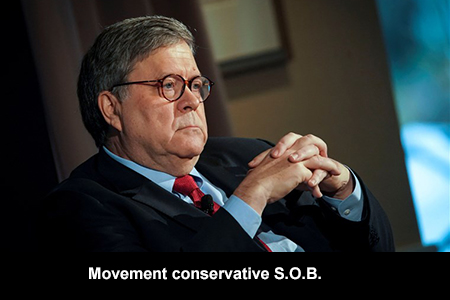
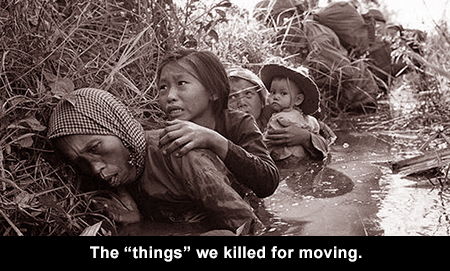
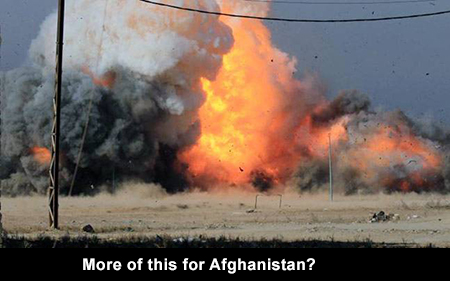
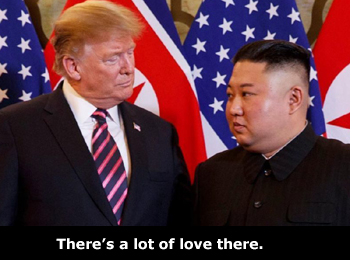
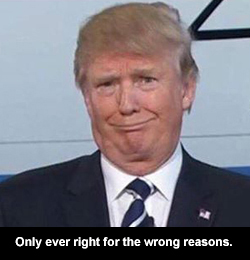 I’ll believe it when I see it. The U.S. presidency has evolved to a point of foreign policy cravenness that pulling all troops out of any conflict, no matter how pointless or long-winded, is simply not an option. And before someone reminds me, yes, we do still have troops in Europe, Japan, and South Korea after more than 70 years. It’s basically the same dynamic. Pull the troops out and they’ll say you’re weak. No president, particularly not the current one, can willingly swallow that accusation. And so it continues – occupations stretching out to the vanishing point, burning up uncounted billions of defense dollars (and I really mean uncounted) and staking our young people out in hopeless situations that no application of military power can solve.
I’ll believe it when I see it. The U.S. presidency has evolved to a point of foreign policy cravenness that pulling all troops out of any conflict, no matter how pointless or long-winded, is simply not an option. And before someone reminds me, yes, we do still have troops in Europe, Japan, and South Korea after more than 70 years. It’s basically the same dynamic. Pull the troops out and they’ll say you’re weak. No president, particularly not the current one, can willingly swallow that accusation. And so it continues – occupations stretching out to the vanishing point, burning up uncounted billions of defense dollars (and I really mean uncounted) and staking our young people out in hopeless situations that no application of military power can solve.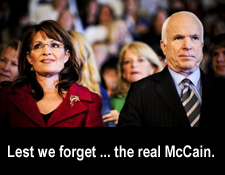 Those are the two best things I can say about the late senior senator from Arizona. The fact is, he spent his entire political career pressing for war every time the opportunity arose; it was central to his brand. He simply never met a war he didn’t like, from Reagan’s proxy wars in Central America and elsewhere, to the Gulf War, to Afghanistan, Iraq, Libya, you name it. He was pressing for direct American involvement in the Syrian civil war early on. And in spite of his celebrated vote against the Obamacare repeal, he has supported Trump’s legislative agenda more than eighty percent of the time, most notably voting to pass the $1.5T tax giveaway to the richest people in the country – a bill that also hobbled the ACA by canceling the mandate.
Those are the two best things I can say about the late senior senator from Arizona. The fact is, he spent his entire political career pressing for war every time the opportunity arose; it was central to his brand. He simply never met a war he didn’t like, from Reagan’s proxy wars in Central America and elsewhere, to the Gulf War, to Afghanistan, Iraq, Libya, you name it. He was pressing for direct American involvement in the Syrian civil war early on. And in spite of his celebrated vote against the Obamacare repeal, he has supported Trump’s legislative agenda more than eighty percent of the time, most notably voting to pass the $1.5T tax giveaway to the richest people in the country – a bill that also hobbled the ACA by canceling the mandate.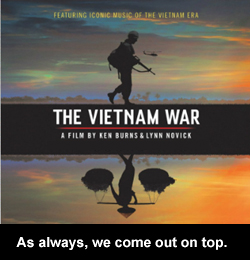 We’re told, for instance, that in 1969 Hanoi would not consider an agreement that would leave the Saigon government in place. Actually, it wasn’t just Hanoi; it was a large percentage of the people under the dictatorial governance of South Vietnam – at least those who had not already been brutalized, burned to a cinder or chopped to pieces by that late date. One important point that’s getting lost in this series is the fact that the vast majority of ordinance dropped by the U.S. in Vietnam was dropped on South Vietnam, not North Vietnam. This is reflective of that imperial framing – South Vietnam was “ours” to rampage over, so look elsewhere. Also, perhaps I’m missing too much, but virtually all of the atrocities I’ve heard described in this series have been on the anti-Saigon side. (I hope this is just a reporting error on my part.) And the picture they paint of Le Duan is practically that of a ruthless super villain, “Dr. No” figure.
We’re told, for instance, that in 1969 Hanoi would not consider an agreement that would leave the Saigon government in place. Actually, it wasn’t just Hanoi; it was a large percentage of the people under the dictatorial governance of South Vietnam – at least those who had not already been brutalized, burned to a cinder or chopped to pieces by that late date. One important point that’s getting lost in this series is the fact that the vast majority of ordinance dropped by the U.S. in Vietnam was dropped on South Vietnam, not North Vietnam. This is reflective of that imperial framing – South Vietnam was “ours” to rampage over, so look elsewhere. Also, perhaps I’m missing too much, but virtually all of the atrocities I’ve heard described in this series have been on the anti-Saigon side. (I hope this is just a reporting error on my part.) And the picture they paint of Le Duan is practically that of a ruthless super villain, “Dr. No” figure.